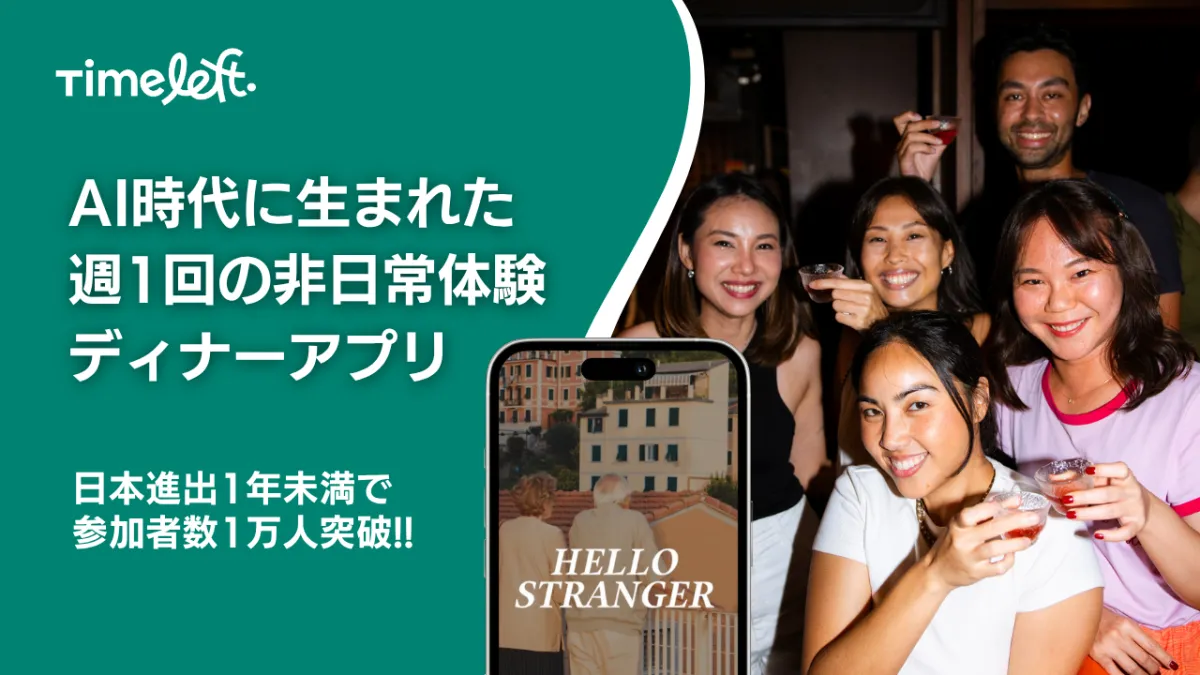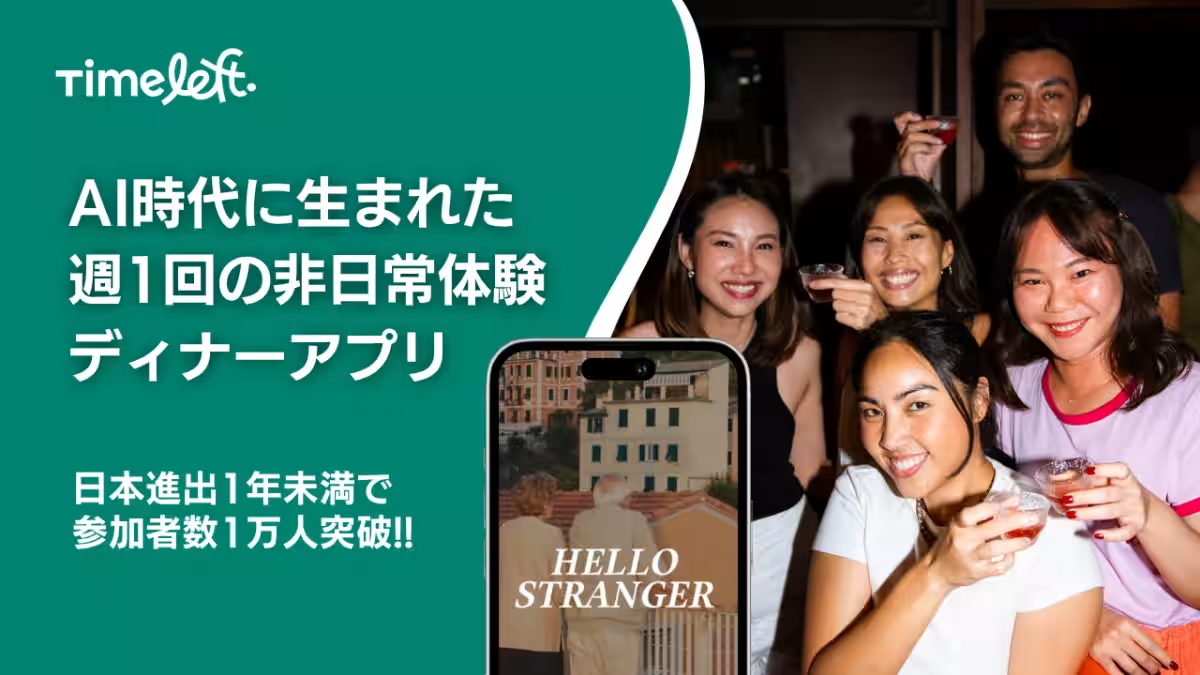

Timeleft: A Social Dining Experience Reshaping Urban Connections
Timeleft: A New Way to Foster Urban Connections Through Dining
In today's fast-paced urban living, the social aspects of our lives often take a backseat. To counter this phenomenon, the French-origin social app Timeleft is revolutionizing the way city dwellers connect. Launched in 2024 in Japan, the app orchestrates weekly group dinners on Wednesdays for six strangers at local restaurants. This innovative approach not only offers a dining experience but also facilitates the creation of meaningful connections among participants.
The unique feature of Timeleft is its algorithm that ensures compatibility based on conversational preferences. By analyzing data from over 30,000 weekly dinners held around the globe, the app matches participants according to a personality assessment taken during registration. This algorithm enables naturally engaging interactions, allowing participants to bond over shared interests and unique experiences.
The Growing Problem of Loneliness
Recent studies, including research from NRI (Nomura Research Institute), reveal alarming statistics about loneliness among young adults in urban areas. Approximately 50% of individuals in their 20s and 30s reported feeling lonely, with a significant decline in daily conversational opportunities. Furthermore, a study by MIT Media Lab in collaboration with OpenAI indicated a direct correlation between extended use of AI chatbots and increased feelings of loneliness. Given these findings, Timeleft addresses a pressing societal issue by prioritizing unpredictable and genuine human interactions.
Rediscovering Serendipity
Timeleft offers a platform for chance encounters with people who one might not normally meet in their daily lives. While traditional social media algorithms curate content based on personal preferences, Timeleft designs environments for spontaneous conversations among individuals with diverse backgrounds and values. For instance, reports indicate that a 20-something male from a major IT firm engaged in captivating conversations about films with a freelance female professional from a different industry—such unexpected connections foster social serendipity and create loyal participants who return for more.
Insights from Leadership
Tu-Han Vincent, the Asia Pacific Director of Timeleft, emphasizes the cultural shift occurring in Japan: “Through Timeleft, a culture valuing ‘casual encounters without specific purposes’ is steadily developing. There is a demand for this third type of connection—in addition to romantic or business interactions—where people simply enjoy conversations. In response to this need, we will continue expanding our services to align with the Japanese market.”
Future Expansion Plans
Currently operational in five Japanese cities—Tokyo, Osaka, Nagoya, Sapporo, and Yokohama—Timeleft is planning to diversify its offerings. Starting May 2025, users can look forward to a “Tuesday Women’s Only Dinner,” followed by a “Thursday Cheers Night” in June, catering to varying preferences of social interaction. In an era where AI advancements increase the rarity of genuine human interaction, Timeleft positions itself as a crucial infrastructure for facilitation of face-to-face conversations.
About Timeleft
- - Name: Timeleft (タイムレフト)
- - Launch in Japan: 2024
- - Registered Users (by June 2025): 30,000
- - Concept: A hands-on social service where multiple first-time encounters dine together weekly
- - Operational Areas: Tokyo (Shibuya, Shinjuku, Ebisu, Shinagawa, Ikebukuro, Ueno), Osaka, Nagoya, Sapporo, Yokohama
- - Primary Users: Urban residents aged 20-40
Company Overview
- - Company Name: Timeleft SAS
- - Founded: 2020
- - CEO: Maxime Barbier
- - Website: Timeleft
References
- - Nomura Research Institute’s report on “Addressing Youth Loneliness in Business” (November 2023)
- - MIT Media Lab’s publication “OpenAI suggests prolonged ChatGPT usage may increase loneliness” (March 2025)
In summary, Timeleft is not just a social app but a growing movement that champions the value of authentic connections in our increasingly digital world.

Topics People & Culture)










【About Using Articles】
You can freely use the title and article content by linking to the page where the article is posted.
※ Images cannot be used.
【About Links】
Links are free to use.